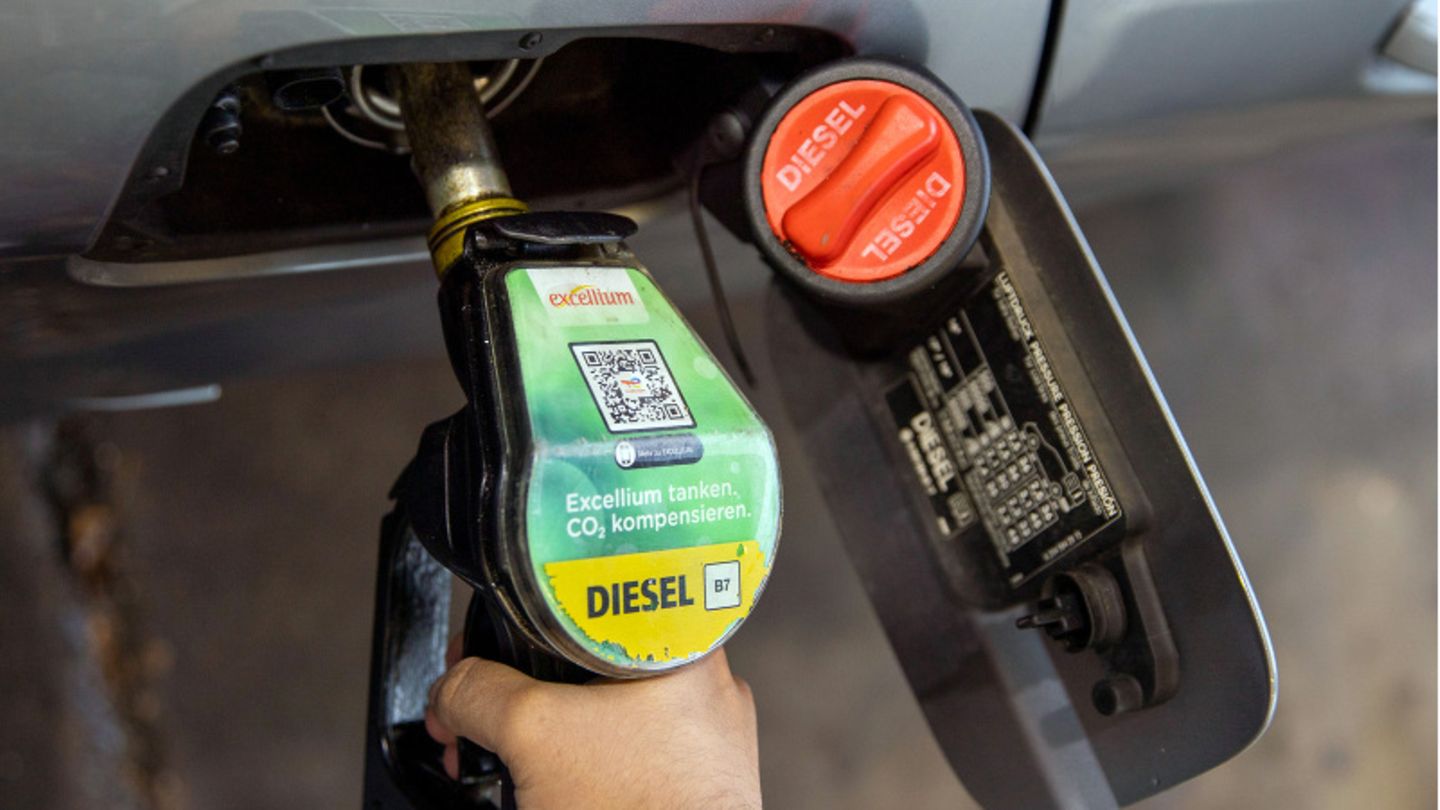The ever increasing oil price has an impact on consumers. Never before has a liter of diesel been as expensive in Germany as it is now.
Diesel is more expensive than ever at filling stations in Germany. In the nationwide daily average on Sunday, the price was 1.555 euros per liter, as the ADAC announced on Monday. This slightly exceeded the previous record of EUR 1.554 per liter on August 26, 2012. Gasoline is also approaching a peak. Super of the E10 variety was 1.667 euros per liter on Sunday. This means that only 4.2 cents are missing from the record of 1.709 euros on September 13, 2012.
The fuel prices have been rising for months. The main driver is the rise in the oil price after the Corona slump last year, which peaked on Monday. In the case of diesel, this is also reinforced by the high demand for heating oil that is typical of autumn. Since the beginning of the year, the carbon dioxide price of 25 euros per ton has resulted in an additional surcharge of around 6 to 8 cents per liter.
The development is particularly drastic if you compare it with the previous year. At that time, oil and fuel prices had reached lows due to the corona crisis before the trend reversal came at the beginning of November 2020.
The increase is also causing political debates, including the outgoing Transport Minister Andreas Scheuer (CSU) recently calling for effective countermeasures to be prepared in the event of a further sharp rise in energy and fuel prices. A large part of the fuel price at the pump are taxes and duties. For diesel, at the current price level, this is around 25 cents VAT, a good 47 cents mineral oil tax and 6 to 8 cents from the carbon dioxide price.
I am a 24-year-old writer and journalist who has been working in the news industry for the past two years. I write primarily about market news, so if you’re looking for insights into what’s going on in the stock market or economic indicators, you’ve come to the right place. I also dabble in writing articles on lifestyle trends and pop culture news.




